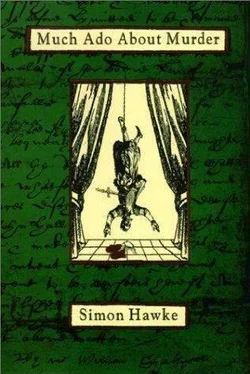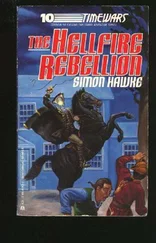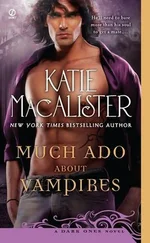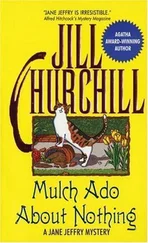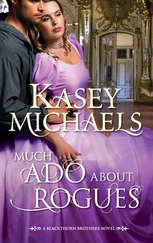Simon Hawke - Much Ado About Murder
Здесь есть возможность читать онлайн «Simon Hawke - Much Ado About Murder» весь текст электронной книги совершенно бесплатно (целиком полную версию без сокращений). В некоторых случаях можно слушать аудио, скачать через торрент в формате fb2 и присутствует краткое содержание. Жанр: Исторический детектив, на английском языке. Описание произведения, (предисловие) а так же отзывы посетителей доступны на портале библиотеки ЛибКат.
- Название:Much Ado About Murder
- Автор:
- Жанр:
- Год:неизвестен
- ISBN:нет данных
- Рейтинг книги:5 / 5. Голосов: 1
-
Избранное:Добавить в избранное
- Отзывы:
-
Ваша оценка:
- 100
- 1
- 2
- 3
- 4
- 5
Much Ado About Murder: краткое содержание, описание и аннотация
Предлагаем к чтению аннотацию, описание, краткое содержание или предисловие (зависит от того, что написал сам автор книги «Much Ado About Murder»). Если вы не нашли необходимую информацию о книге — напишите в комментариях, мы постараемся отыскать её.
Much Ado About Murder — читать онлайн бесплатно полную книгу (весь текст) целиком
Ниже представлен текст книги, разбитый по страницам. Система сохранения места последней прочитанной страницы, позволяет с удобством читать онлайн бесплатно книгу «Much Ado About Murder», без необходимости каждый раз заново искать на чём Вы остановились. Поставьте закладку, и сможете в любой момент перейти на страницу, на которой закончили чтение.
Интервал:
Закладка:
In a city where the members of the new, rising middle class were constantly competing to show off whose rise was faster, and where the nobles were always trying to outdo one another in elaborate displays of wealth and fashion, a frugal man who spent his money wisely on his business interests rather than on expensive homes or carriages or suits of clothes that he could change as many as three times a day could quietly build up his wealth and become a rich man without fanfare. And that seemed like just the sort of thing an unassuming, former seafaring man would do.
“This seems like the kind of place where a retired ship’s captain would drop anchor,” Shakespeare said, echoing Smythe’s thoughts. “A nice, solid, comfortable place to live on dry land, within walking distance of the river, where he could stroll on the bankside and observe the wherrymen and the ships beyond the bridge. A man could do much worse.”
“And many do,” said Smythe.
“Someday, I shall have a fine house of my own in town,” said Shakespeare. “You know, I could be well satisfied with something similar to this. I need no cut stone or brick to look like some archbishop’s residence. A good, solid, English home of lathe and plaster will do me nicely, the sort of place befitting a gentleman, rather than a marquis or a viscount.”
“ Tis good to know that your ambitions are merely modest ones,” said Smythe, with a straight face. “ ‘Twouldn’t do at all for a humble poet to overreach himself.”
“You think?” said Shakespeare.
“Aye. How many poems or plays, do you suppose, would one have to write in order to be able to afford a modest place like this?” asked Smythe, giving him a sidelong look.
“Do you mock me, you pernicious rascal?”
“What, I?” Smythe said, feigning surprise. “Nay, ‘twas merely an idle question. Three or four score, do you think? Well, perhaps less, if you are made a shareholder. Aye, two score or so should do it. So long as they are all as popular as Marlowe’s. That should not present too great a difficulty, not to a fellow as industrious and talented as yourself. How many have you written thus far?”
Shakespeare glowered at him.
Smythe blithely went on. “Well, let us see… there is that one about the drunken lout who falls asleep and is then found by a noble and taken to his house… oh, no, wait, you never finished that one, did you? Ah, but then there is the one about the war… no, you still have not got past the first act, have you? Oh, hold on, there was that idea you had about the twins, from the time we helped Elizabeth and encountered that fiendish foreign plot… did you ever actually do anything with that?”
“You cankerous, flea-infested, mocking dog! See who nurses you the next time you are brought home with a broken head, you ungrateful, prating wretch!”
“Ah, well, thus am I justly chastised,” Smythe replied, hanging his head in mock shame. “Ungrateful wretch I am, indeed. I am a rude fellow. You may beat me. Here, let me find a stick…”
“Oh, cease your foolishness,” Shakespeare said, with a snort. “Come along, let us go and question Master Leonardo’s servants.”
The household servant who opened the door to them had the look of a man whose future was uncertain. Tall, thin, and balding, with wisps of white hair sticking out in all directions, as if he habitually ran his hands through what little of it was left, he reminded Smythe of a horse that had been spooked.
“Dear me, more visitors and more inquiries,” he said, anxiously. “I really do not know what I should do. The master of the house is cruelly slain, the mistress is not present and is grieving in seclusion, and it simply is not right to have people coming to the house and asking questions, searching through everything…”
“Your concern for your master’s house and goods is very commendable,” said Shakespeare. “We are here merely to ask some questions of you and the other servants on behalf of your mistress and your master’s business associate, Henry Darcie. But tell us, first, who else has spoken with you? Someone has been here to search the house?”
“Aye, and he, too, claims to have had business dealings with poor Master Leonardo.”
Smythe frowned. “Who was he? Did he give you his name? Can you describe him?”
“You may see him for yourself,” the servant said. “He is within.”
Shakespeare and Smythe exchanged glances, then quickly pushed past the distraught servant and entered the house. They saw two female servants in their aprons standing near the stairs, huddled together like frightened chickens in a corner of the coop, and at once they could hear the sounds of someone rummaging about upstairs. As they exchanged glances once again, they heard a loud crash, as if something heavy had been overturned.
“This time, I have brought my sword,” said Smythe, drawing it from its scabbard.
“I shall be right behind you,” Shakespeare said.
“With what, your quill?”
In response, Shakespeare pulled out a knife from inside his boot, a bone-handled stiletto with a six-inch blade.
“Good Lord!” said Smythe. “Where did you get that?”
“I brought it from the Theatre,” Shakespeare said.
“Do you know how to use that thing?”
“I understand one pokes at people with it,” Shakespeare replied, wryly. “I have done some fencing on the stage, you know.”
“On the stage,” repeated Smythe, rolling his eyes. “God help us. Just keep behind me.”
“Precisely where I had intended to remain,” Shakespeare replied.
They went up the steps cautiously, with Smythe leading the way. The rummaging noises grew louder as they drew closer. Someone was ransacking the house, and from the sound of it, being none too gentle about it.
“Be careful, Will,” said Smythe, when they reached the top of the stairs.
“You be careful,” Shakespeare replied. “If anything should happen to you, I would be next.”
“Your concern for my safety is touching,” Smythe said with a grimace. He reached out and placed his hand on a door that stood slightly ajar. The noise was coming from within. “Get ready…”
He shoved the door open hard, slamming it against the wall, and came into the room fast, his sword held out before him. The man ransacking the room spun around, immediately drawing his own blade.
“Tuck!”
Smythe’s eyes grew wide. “Ben! What the devil are you doing here?”
Dickens lowered his sword, then sheathed it as he spoke. “I might well ask you the same thing,” he replied. He glanced over Smythe’s shoulder. “Is that you, Will?”
“ ‘Allo, Ben,” said Shakespeare, coming into the room sheepishly after having peeked around the corner.
Smythe sheathed his blade, as well. “We came to question Master Leonardo’s servants, to see what we could learn about what had transpired here the night that he was killed.” He looked around. “God’s body, Ben! You have bloody well torn the place apart! What in Heaven’s name are you searching for?”
Dickens shook his head, looking around helplessly. “ ‘Twas not me, Tuck. I came to look for something… anything… that could help Corwin prove his innocence, but the house had already been ransacked when I got here.”
“Did you find anything?” asked Shakespeare.
Dickens shook his head in frustration. “Nothing. Save only that there seems to be no money left anywhere in the house.”
“He may have had it all cubbyholed away somewhere,” said Smythe.
“If he did, then I cannot find it,” Dickens replied. “And I have looked everywhere. But I tell you, there is not a tuppence nor a halfpenny in this house. Not anywhere. It must have all been stolen.”
Читать дальшеИнтервал:
Закладка:
Похожие книги на «Much Ado About Murder»
Представляем Вашему вниманию похожие книги на «Much Ado About Murder» списком для выбора. Мы отобрали схожую по названию и смыслу литературу в надежде предоставить читателям больше вариантов отыскать новые, интересные, ещё непрочитанные произведения.
Обсуждение, отзывы о книге «Much Ado About Murder» и просто собственные мнения читателей. Оставьте ваши комментарии, напишите, что Вы думаете о произведении, его смысле или главных героях. Укажите что конкретно понравилось, а что нет, и почему Вы так считаете.
